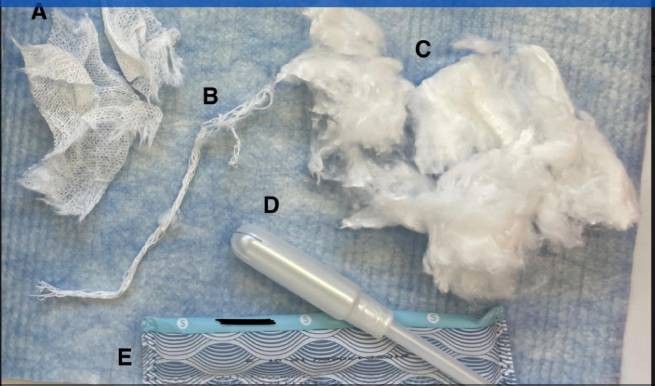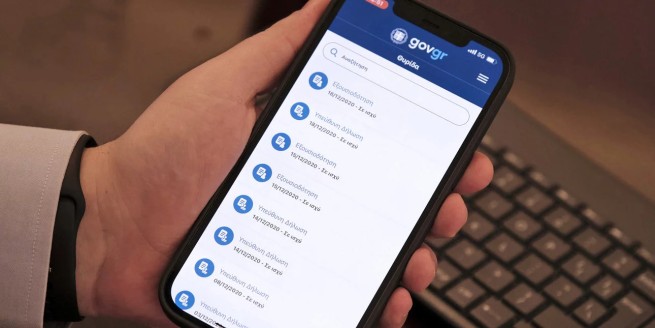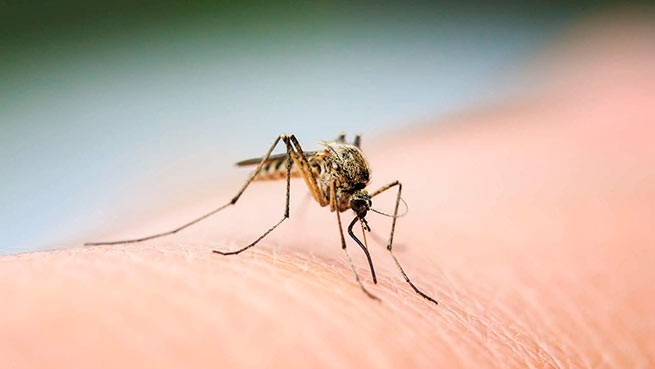Greece's National Public Health Organization (EODY) recommends taking precautions against mosquitoes to reduce the risk of contracting the West Nile virus, which is expected to circulate again this year.
Cases of infection occur in many countries around the world, as well as in many European countries, annually, usually in the summer and autumn months. Since 2010, outbreaks of the disease have occurred in our country almost every year. It is therefore considered likely and expected that there will be a recurrence of cases during the current period of mosquito circulation (as in any other period of virus transmission).
Moreover, this year, thanks to mild winter temperatures, conditions are assessed as favorable for an early start to the period of high seasonal mosquito activity and the recording of an increase in their populations and intense circulation of the virus.
How is West Nile virus transmitted?
West Nile virus is transmitted through the bite of infected “regular” mosquitoes. Mosquitoes become infected from infected birds (some species, mostly wild). Infected people do not transmit the virus to other mosquitoes or other people (through direct contact).
Most people infected with the virus have no or mild illness, while very few (<1% of those infected) develop severe illness affecting the nervous system (mostly encephalitis or meningitis). Older people (over 50 years of age) and people with immunosuppression/chronic underlying diseases are at greater risk of severe illness.
Precautions recommended by EODY
Because the epidemiology of the virus is complex and determined by many factors, areas of virus circulation and outbreaks cannot be predicted with certainty. Therefore, EODY recommends that personal protection measures against mosquitoes be observed throughout the country during the entire period of mosquito circulation:
- Use approved insect repellents (according to instructions for use), screens, mosquito nets, air conditioners/fans, and appropriate (long) clothing.
- Don't leave standing water anywhere (this way you actually help limit mosquito breeding grounds in private areas).
- Older people, those with weakened immune systems, and those with chronic illnesses should be especially careful to follow these measures as they are at greater risk of becoming seriously ill.
During each period of transmission of infection and in order to take timely targeted response and prevention measures, the EHIC Epidemiological Surveillance Unit carries out enhanced epidemiological surveillance of the disease, informs health and public health professionals, promptly investigates cases of the disease and is in constant communication and cooperation with competent national and local authorities.
The Ministry of Health, in collaboration with EODY, has developed a comprehensive action plan for the control of West Nile virus infection to standardize the implementation of measures to manage and reduce the risk of transmission of the virus based on the assessment.
More information about West Nile virus and mosquito control measures can be found on the Hellenic Health Organization website at link. You can also keep up to date with current epidemiological data (number of cases at the municipality level) thanks to the updated weekly infection surveillance reports that will be published weekly on this site.
In the context of the integrated management and prevention of mosquito-borne disease transmission, the Hellenic Health Organization, in collaboration with several organizations, implements, participates in and/or coordinates – in recent years – an active insect surveillance program at the national level. Insect surveillance is key to assessing the risk of transmission of these diseases and timely implementation of preventive measures. It aims to record mosquito species circulating in the country, detect the circulation of West Nile virus in mosquitoes as an early warning system for the prevention of this disease, and early detection of any new mosquito species of public health importance.
For the period up to 2024, EODY, taking care of increasing the available budget, has established and will implement an expanded program of enhanced insect surveillance by developing a network of cooperation with state and wider government agencies, as well as expanding a network of mosquito traps with standardized methodology and representative geographical distribution .
The project will be carried out under the coordination of EODY in collaboration with the Benakios Phytopathological Institute, the University of Western Attica, the Hellas Research and Technology Foundation, ELGO Demetra, the Agricultural University of Athens, the Aristotle University of Thessaloniki, the University of Thessaly, the Democritus University of Thrace and the University of Patras. The resulting entomological data will be easily accessible to local authorities responsible for mosquito control for targeted and timely implementation of mosquito control measures at the local level.







More Stories
5 Reasons Why You Shouldn't Sleep Naked on Hot Summer Nights
Study: Cutting Processed Meat Prevents Diabetes, Heart Disease, Cancer
Pool: How to Protect Skin and Hair from Chlorine